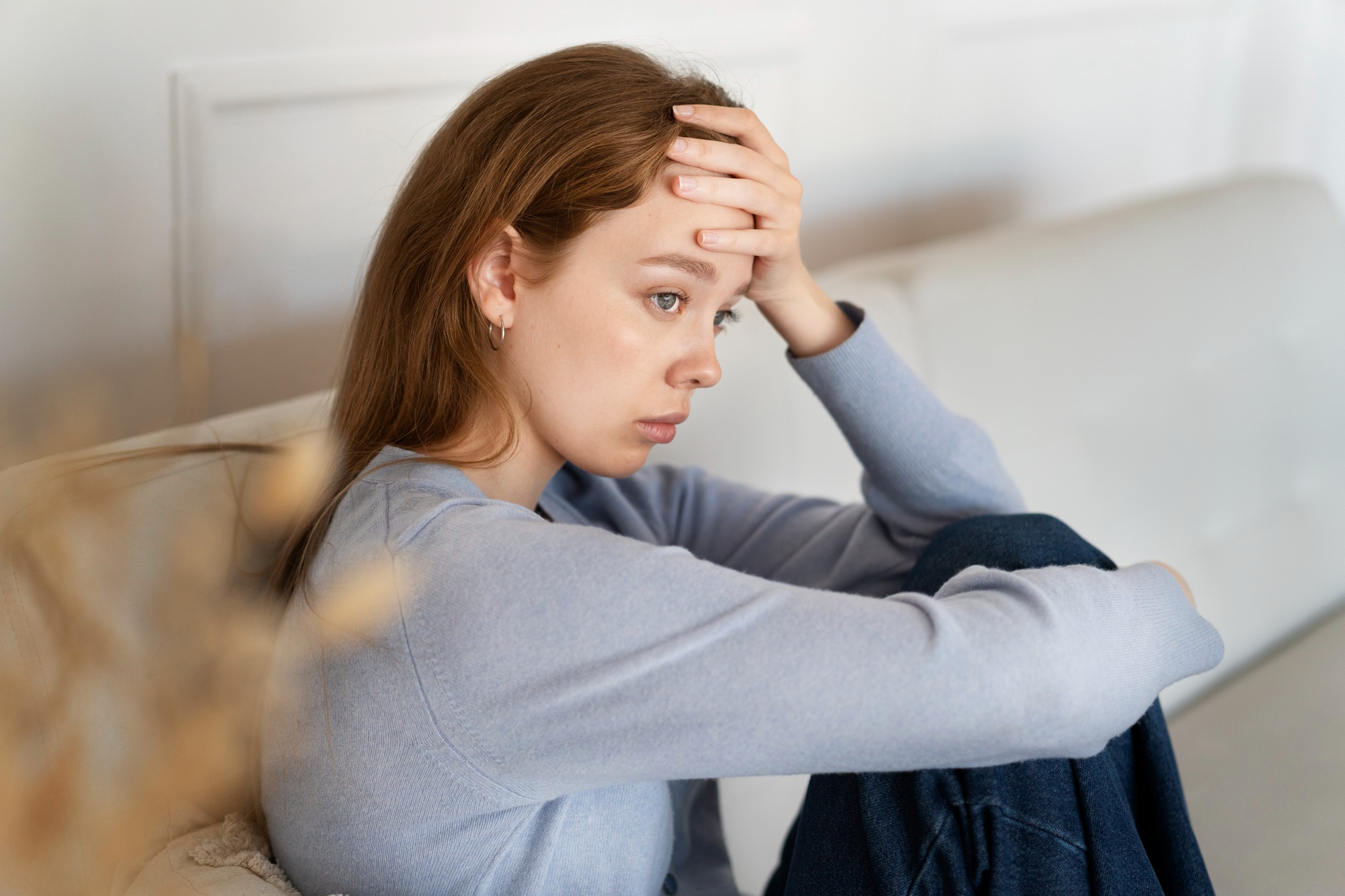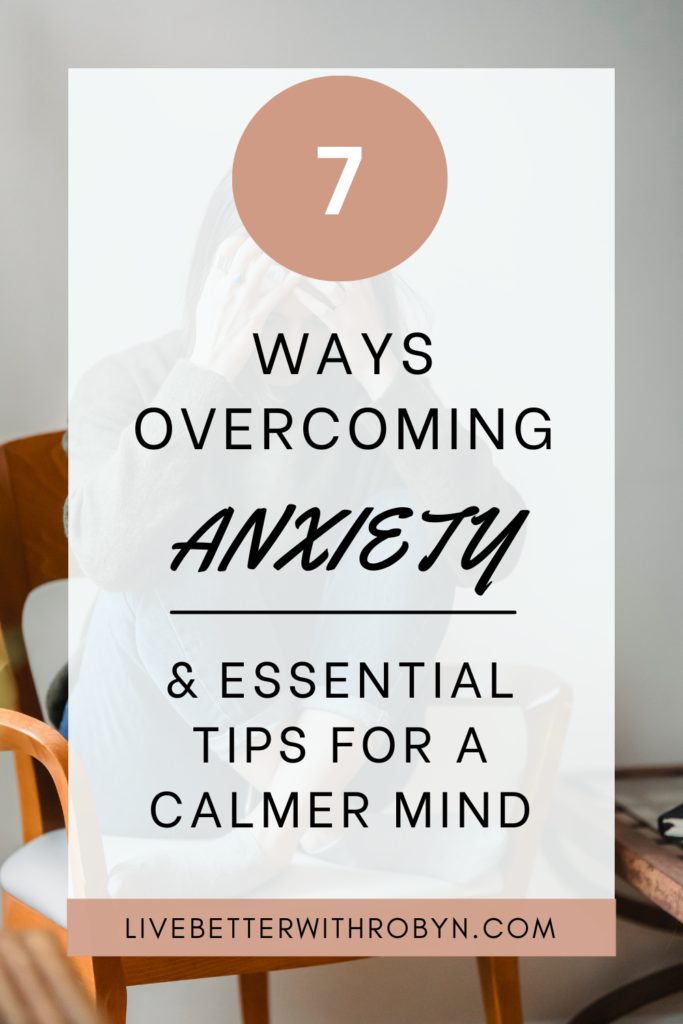My journey with anxiety
I totally remember that day when I heard about my uncle passing away. It was like my stomach did a somersault and my heart was racing. I had never felt anything like it before, so I looked it up and found out it was a panic attack. It was weird because I couldn’t find the reason for all of this happening so I didn’t understand why I was freaking out. Anxiety is just like an annoying visitor that shows up unexpectedly, making you worry about stuff that hasn’t even happened yet.
So, like, everything hit me all at once. Moving out of my parents’ place, planning a wedding, getting used to my fiancé as my husband, designing the house and getting comfortable with our money situation then BAM! Anxiety came knocking. I had no clue how to deal with it. It totally took over my life – couldn’t sleep, couldn’t eat, couldn’t even hang out with friends. Lost like 45 pounds in 3 months, crazy right?
But looking back, I’m thankful for that rough patch. It gave me a whole new perspective on life. Anxiety’s a real pain, it messes with your head and your body. Makes your heart race, muscles tense up and leaves you feeling like you can’t catch your breath. It’s like this sneaky little gremlin that messes up your day-to-day life and makes you feel like you’re about to lose it and it’s not just mental, it messes with your thoughts too, making you feel like you’re in danger all the time. It makes it hard to focus and to make good choices. It makes you want to hide away instead of hanging out with your friends. So, let’s show some love and support to those dealing with anxiety, they’re going through a lot more than just a case of butterflies in their stomachs!
Recognising the symptoms of anxiety
I had so these symptoms all day long and it can creep up on you in many ways. If you’re feeling jittery, have tense muscles with headaches and feel like taking a nap by midday this could be a sign. Emotionally, you might feel like the world’s on your shoulders, always on edge and irritated by the slightest thing. Your thoughts might be racing, concentration may be a struggle and you might be looking out for potential threats.
You might also avoid particular situations, find your sleep patterns jumbled and get overwhelmed by everyday things. Knowing these symptoms can help you act quickly and get the support you need to keep your mental health in check. If you or someone you know experiences these symptoms, don’t hesitate to seek professional advice.
Effective strategies for calming strategies

I looked up ways to get rid of anxiety every day on Google, but turns out all I needed to do was take a deep breath, focus on the good stuff, and let go of the bad vibes. Mindful meditation and muscle relaxation are also great for calming anxiety. Who doesn’t love activities that make you smile or feel good about yourself? I always tried to stay positive because I knew that being negative would only make things worse.
I looked up ways to get rid of anxiety every day on Google, but turns out all I needed to do was take a deep breath, focus on the good stuff, and let go of the bad vibes. Mindful meditation and muscle relaxation are also great for calming anxiety. Who doesn’t love activities that make you smile or feel good about yourself? I always tried to stay positive because I knew that being negative would only make things worse.
Keep your mind in check by sticking to a routine and getting enough sleep. Don’t forget to challenge those negative thoughts! Eating healthy is important too, since having an unhealthy gut can make anxiety worse. Everyone is different, so find what works best for you to relax. And if you need extra help, don’t be afraid to reach out to the professionals.
Mindfulness techniques for anxiety
What helped me was making sure that I stayed busy and distracted. I took up knitting and started creating small goals for myself. When I finished a ball of yarn, I felt accomplished and felt good so create a realistic goal for myself so you can do it too, get something you always wanted to try.
Among other Techniques for Managing Anxiety, I tried:
- Focused Breathing: Inhale and exhale slowly while paying attention to your breath.
- Mindful Meditation: Observe your thoughts without judgment, allowing them to pass without getting caught up in them. Ask yourself if those thoughts are real and has it happened. Focus on the now and not the future!
- Progressive Muscle Relaxation: Systematically tense and relax different muscle groups to release tension.
- Grounding Exercises: The 5-4-3-2-1 technique heightens sensory awareness and brings attention to the present moment.
- Regular practice of mindfulness techniques cultivates non-judgmental awareness, which can help you build resilience against anxious thoughts.
- Lastly was told myself: “IT IS OKAY TO BE ANXIOUS, THIS WILL PASS AND YOU WILL GET YOUR LIFE BACK” Even when I didn’t believe it, I still said it to myself.
When to seek professional help
Dealing with anxiety on your own can be tough, so I decided to see a psychologist. I was really nervous because I didn’t want to be judged, but I went for it and it turned out to be one of the best decisions I’ve ever made. It’s important to know when it’s time to get professional help. If anxiety is getting in the way of your daily life, sticking around for a while or getting worse, it’s a sign to seek help. Especially if it’s messing with your relationships, work, or overall well-being. In those cases, talking to a therapist or counselor is a good idea.
If you’re experiencing physical symptoms or turning to unhealthy ways to cope, it’s crucial to get professional help ASAP. Trust your gut – if you or someone you know is feeling overwhelmed by anxiety, don’t hesitate to reach out to a mental health professional. They can offer the support and guidance needed to tackle this challenge.
Building a support system for anxiety management

It’s super important to have a solid support system when dealing with anxiety. Talk to your friends or family about how you’re feeling and educate them on what anxiety is all about. Find people who you trust that can be there for you when things get tough.
Look into joining support groups, online or in person, to connect with others going through similar situations. Work with mental health professionals to get personalized guidance. Surround yourself with a positive and understanding people who can help you manage your anxiety. This is a BIG one that helped me!!
Long-term solutions for preventing anxiety relapse
When you’re dealing with anxiety, it’s super important to reach out to your family, friends or anyone you can trust. Talking and keeping those communication lines open can help you let go of all those scary thoughts building up inside. By educating the people around you about what you’re going through, you can help them understand your mental state better.
Surround yourself with peeps who will always have your back when things get tough. Joining online or in-person support groups can connect you with others who are going through similar stuff. Working with mental health professional can give you some really helpful advice and insights. Your support system should be a safe space where you feel positive vibes, without any judgment and lots of encouragement.
Relaxation exercises to alleviate anxiety
I remember doing this exercise advised by the psychologist to relax your body and mind first so I had to picture a room where you feel comfortable and relaxed in with this most comfortable couch overlooking a beautiful big, window and ceiling. You need to picture a box on the table and when you look into the box you need to place each and every “trigger” into the box, like picture the word eg: if it is “stress” or “work” or even picture yourself writing it on the paper if you want to and place it into the box so once you have placed all your triggers into the box, you put a helium balloon on it and watch how it floats away. Now this could take a while so let that balloon float as long as you want. This exercise gets rid of the triggers in your subconscious. It takes practice but it WORKS!!
So, effective relaxation exercises to alleviate anxiety include deep breathing exercises, such as:
- Diaphragmatic breathing. Focus on inhaling slowly through your nose, allowing your abdomen to expand, and exhaling through your mouth.
- Progressive muscle relaxation involves tensing and then slowly releasing different muscle groups to reduce overall tension.
- Guided imagery or visualization techniques encourage the creation of calming mental images.
- Mindful meditation, where you focus on your breath and observe thoughts without judgment, is also beneficial.
Conclusion
Experiment with these exercises to find what works best for you and incorporate them into your routine for ongoing anxiety relief. It’s important to remember that relaxation exercises are just one tool to manage anxiety and should be used in conjunction with other methods, such as therapy and medication. If you’re feeling overwhelmed or struggling to manage your anxiety, it’s important to reach out for help. Talking to a mental health professional or support group can provide additional support and guidance.
Remember, you are not alone and there is help available.
I have been managing for the past year now, It has been tough but know that it WILL GET BETTER!
Xx






